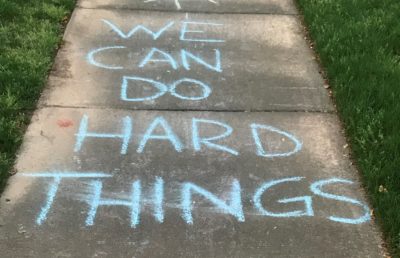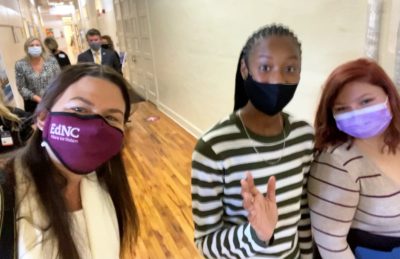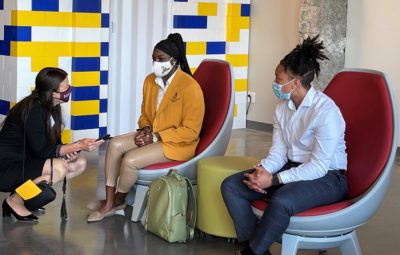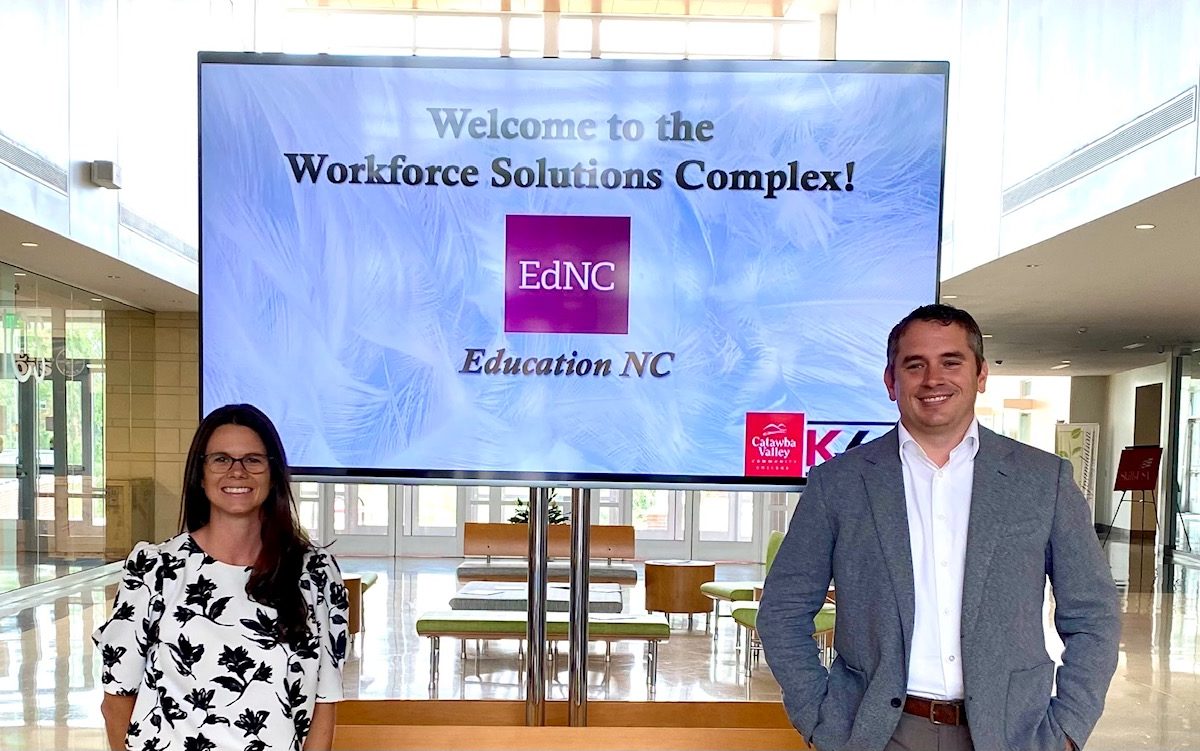
Share this story
- “Taking the time to really listen, to really get to know each other, moving beyond the roles we play to the salient parts of who we are as human beings … is central to our work because it is central to yours,” writes EdNC's @Mebane_Rash. #nced
- "We need more voices, not less, in the mix in these polarized and politicized times," writes @Mebane_Rash ahead of a new school year. "Continue to help us understand how to connect what's happening in classrooms and community with policy." #nced
|
|
Welcome to the new school year, y’all.
EdNC learned a lot about the power of welcome as we traveled in person during the pandemic.
Visiting you all created the opportunity for us to think about how people and place help us keep a pulse on what’s going on out and about North Carolina in ways that inform the purpose of our work.
This is Welcome, North Carolina.
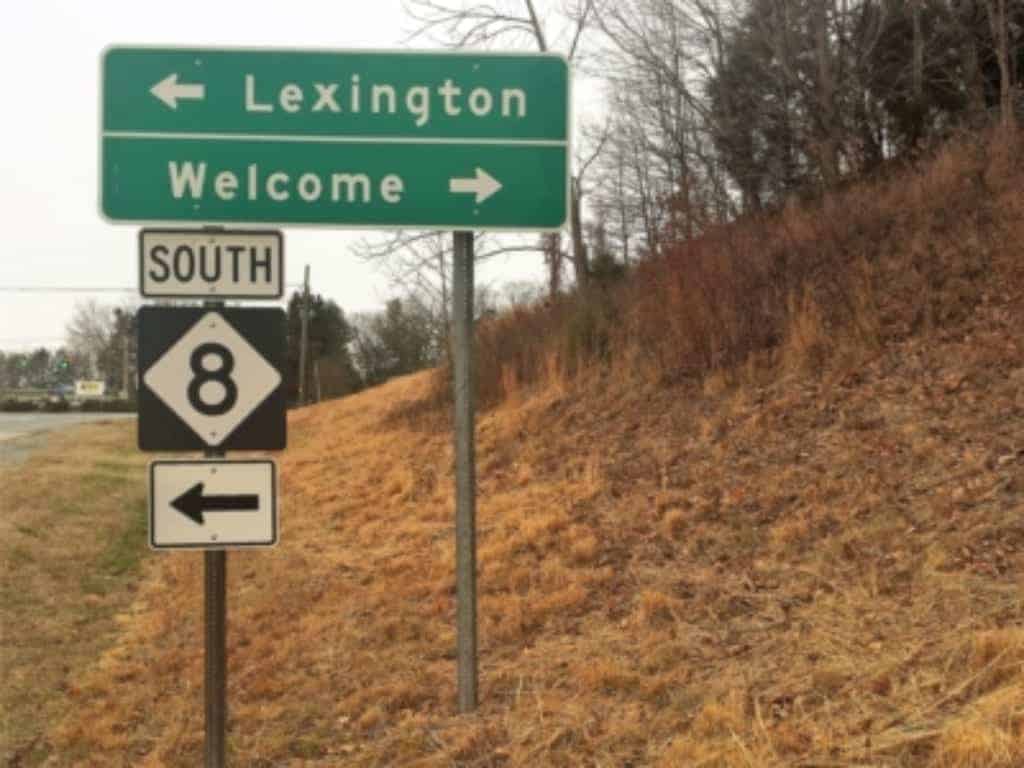
The people we serve
We’ve learned how to create more meaningful connections in community from two of our favorite principals, Donnell Cannon and Matt Bristow-Smith, asking “Who are you?” over and over.
Getting to know people — taking the time to really listen, taking the time to really get to know each other, moving beyond the roles we play to the salient parts of who we are as human beings — is central to our work because it is central to yours.
You know who has these kinds of conversations? Teachers with students. Principals with parents. Superintendents with community leaders. Community colleges with local businesses.
EdNC started with an audience of zero. Today, we have 50,000 impressions on social media daily, we send out 250,000 emails each week, and we have more than 2 million pageviews annually. A lot of our audience growth happened during the pandemic when our decision to stay on the road allowed us to answer your questions.
The question ahead is how to broaden our reach in all 100 counties and deepen our reach with people and communities underserved by news outlets — and by us.
From the beginning of EdNC, we have strived to build an architecture of participation.
The places we serve
The power of welcome starts with being welcome in all 100 counties.
All, including our 23 counties that voted 70%+ for President Trump, our urban crescent counties from Charlotte to Raleigh that lean left, and our very purple counties in between.
Our job is to keep people talking across all of the lines of difference — race and ethnicity to be sure, but also sexual orientation, rich and poor, old and young, urban and rural, conservative and liberal, Tar Heels and not-from-heres.
Superintendent Mark Garrett taught me an important lesson. He said, “You don’t have to be from the place, but you better be of it.”
For example, if you are down in Carteret County, you better know what “from off” means. It also helps to know how to talk like a Tar Heel. And it helps to figure out where people get their coffee.
Visiting over coffee and trust
Back in 2018, Jeremy Anderson, the president of Education Commission of the States, visited North Carolina, speaking with a group of leaders and policymakers convened by The Belk Foundation.
In communities and states where “leaps and bounds” are being made in education, leaders have found ways to work across difference, Anderson said.
“It’s a simple litmus test,” he continued. “Can the people who can move this policy meet for coffee even if they disagree and talk though some of these differences?”
It’s about relationships. It’s about relationships imbued with trust.
I started drinking coffee.
I thought a lot about this word “visit” during the pandemic when our in-person visits — especially early on — seemed to carry more significance.
Curious, I looked up the definition of “visit,” which means “go to see and spend time with.” But there is another layer to it definitionally. This sense that visiting brings comfort.
“God knows, we need you and EdNC.”
— From a superintendent
EdNC invests more than $100,000 annually to keep our team on the road so we can visit your communities over and over and over again, building relationships and earning your trust.
This fall we will be doing another blitz of all 58 community colleges, albeit over a longer period this time around. We can’t wait to see you on the road again!
Keeping a pulse on things
Knowing the people and the places we serve allows us to keep a pulse on what’s going on in your communities.
For example, Katie’s story on how one school pre-taught grieving when a beloved music teacher faced a terminal illness, Molly’s story on the demerger in Nash and Edgecombe counties, and Dean’s still-in-the-works research on school board elections. Our work is in the process of being cross-checked, but it looks like there are 759 school board seats across the state, and 356 are up for election this year.
Eight members of our team will be keeping a pulse this school year on the eight regions of our state. They will take about 3-4 hours each week to check on their counties and tell us on Fridays what we should know as we consider content at our Monday meeting.
Recently, at a convening of the team, board, and strategic council of EdNC, we talked about how the roles people play and where they live shapes how they perceive the function, impact, and purpose of our work.
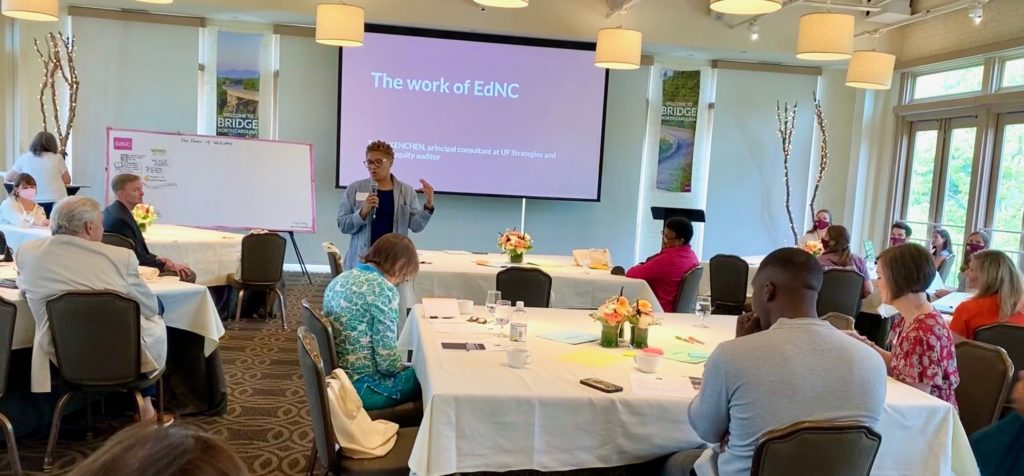
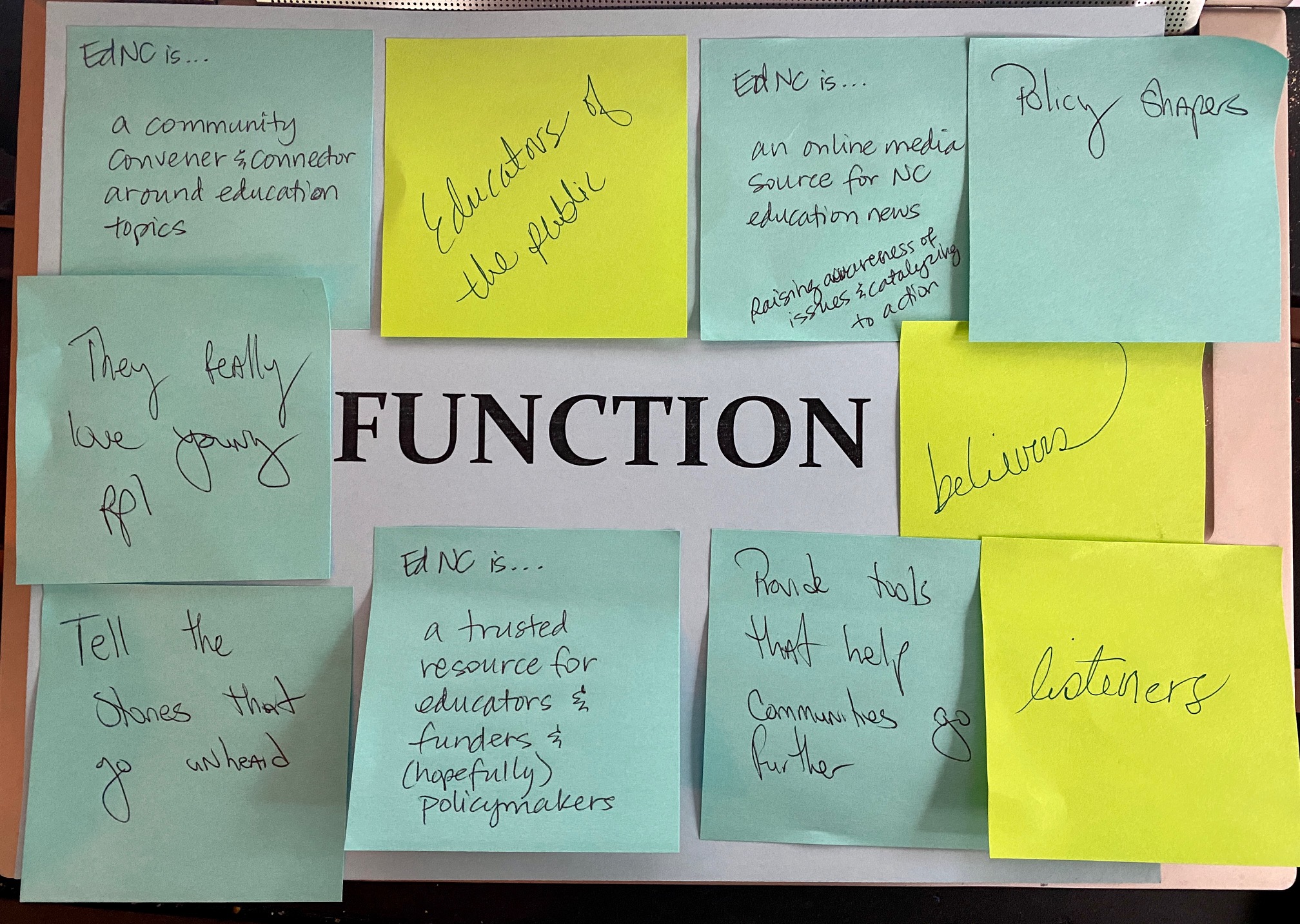
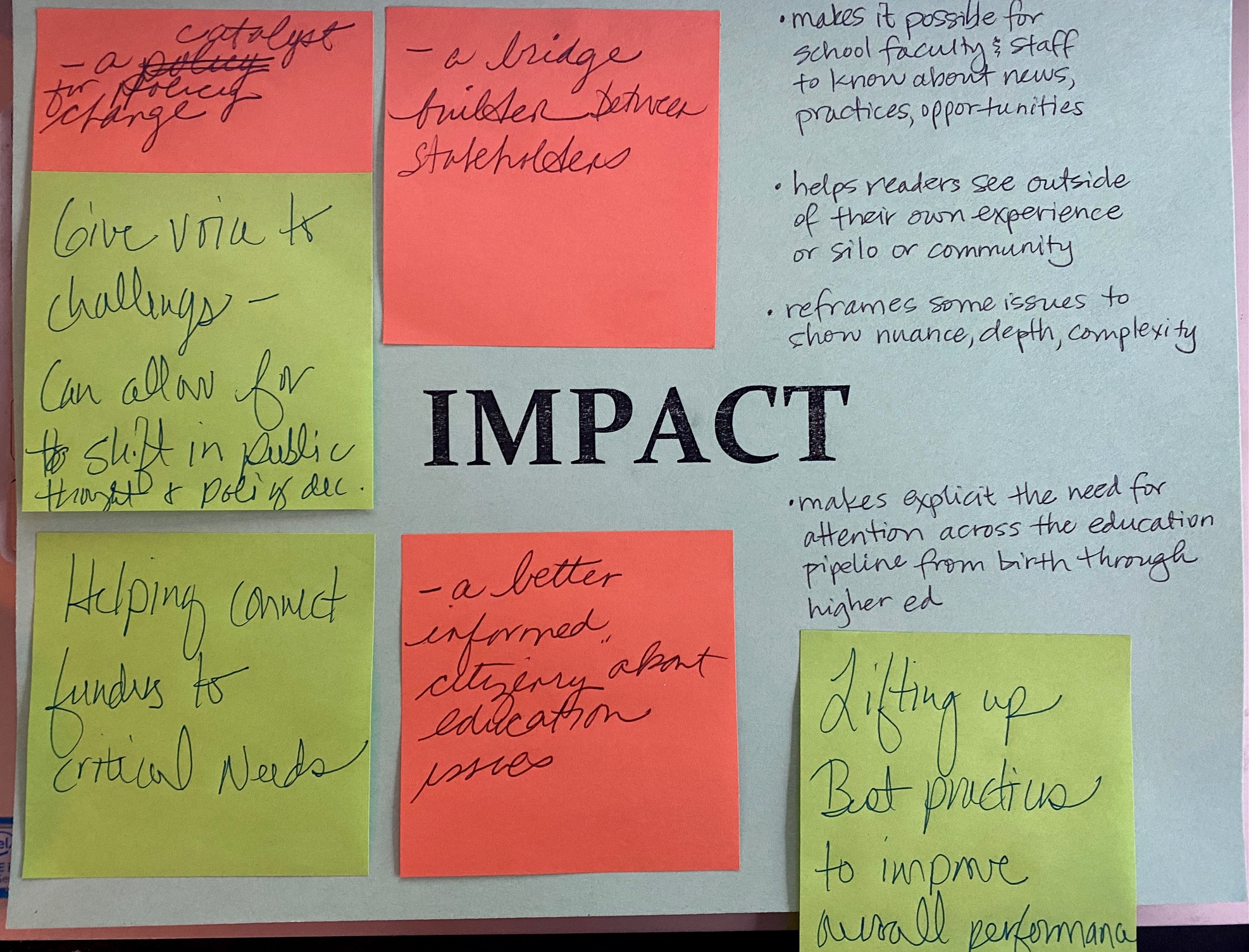
“Tell the stories that go unheard,” and another sticky note that said “give voices to those who don’t always have a voice,” affirm our commitment to publishing perspectives. From the beginning of EdNC, we were committed to sharing our platform because even in the initial round of interviews that went on to shape how we do this work, it was clear and palpable that you all have a voice. You always have. You just didn’t always have access to a platform to share your voice. Our most significant engagement strategy remains a commitment to publishing a perspective each day, with at least one person of color weekly, and a preference for publishing those unlikely to have access to another publishing platform.
We need more voices, not less, in the mix in these polarized and politicized times. We need you to continue to help us understand how to connect what’s happening in classrooms and community with policy.
Nation and I were in Charlotte earlier this year for a community visit, and Charles Thomas with the Knight Foundation connected us to Jamall Kinard, executive director of the Lakewood Neighborhood Association.
Jamall taught us the difference between a neighborhood and a community that day. He said a community has four things a neighborhood doesn’t have. It has access to groceries. It has access to financial services. It has access to health care. It has access to education and skills training. It was an aha moment for us all.
We realized similarly there is a difference between our classrooms that feel just like classrooms to our students and those that feel like a community. We wondered how to bring more and more Jamalls into our work.
The shift in understanding that happens as we have a pulse on more and more communities will inform our work moving forward.
Please welcome Derick Lee Stephenson, a teacher storyteller, to our team.
A teacher storyteller joins the EdNC team
This is the first day I ever met Derick. See what his shirt says?
A Teach for America corps member in 2016, Derick was teaching eighth grade English/Language Arts at Martin Millennium Academy in Edgecombe County Public Schools, and in the summers he was working at this Freedom School in Rocky Mount, which “helps young scholars fall in love with reading.”
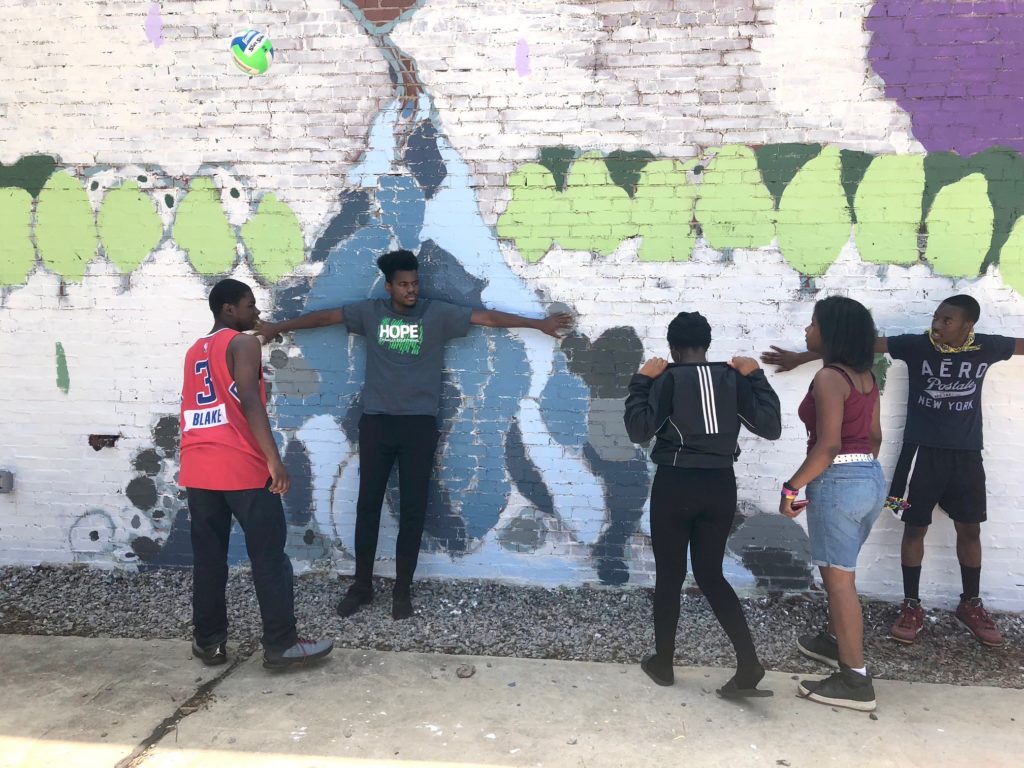
Derick served as one of our EdAmbassadors. He served as our equity editor.
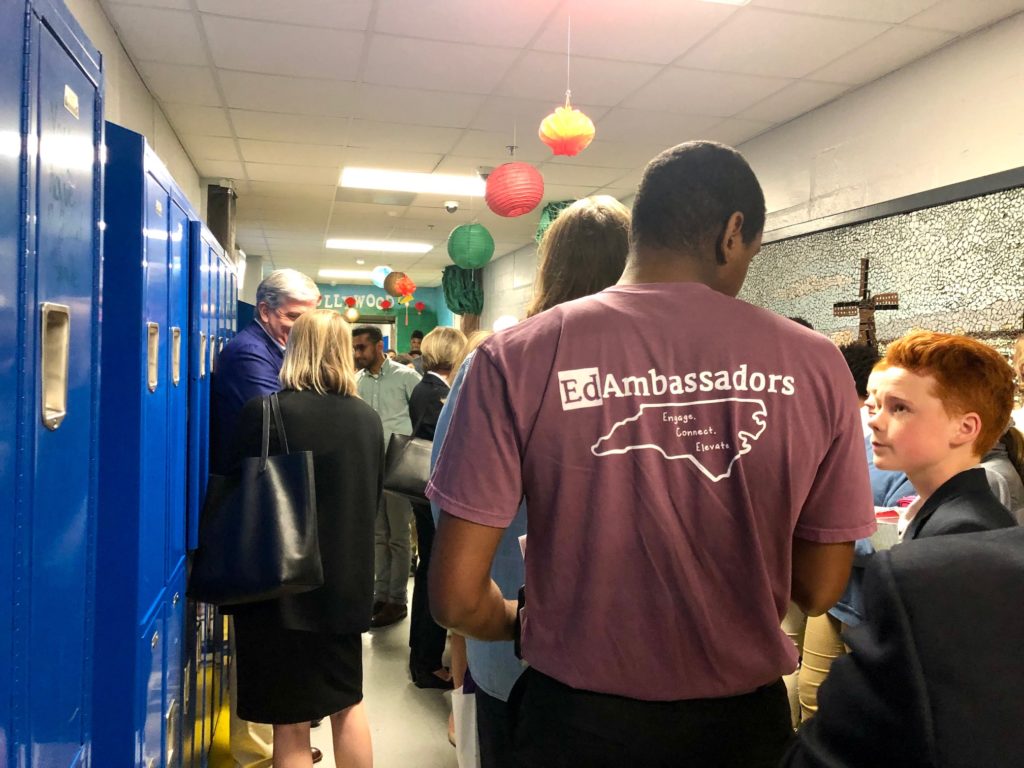
Derick is a spoken word poet. Please listen and watch — the whole thing — as he shares his experience as a teacher with IBM executives from all around the world.
Derick begins with the shame and disappointment he felt as a teacher on a day he was running late to school. He shares how students powerfully affirm the importance of their teachers. He shows how writing can change narratives. He reflects on how much he loved his students, how his colleagues became family, and his school felt like home. And then he says this, which is why he belongs with us on the EdNC journey…
Each day just requires dedication.
Each day requires consistency and patience.
Each day requires us to stay committed to breaking down the barriers that stand in the way of our children so that every single child in this nation can have the opportunity to attain an excellent education.
One day.
“Derick Stephenson raises awareness about our students, our teachers, and our state using the art of storytelling,” says Inez Rubistello, an author and business owner in Tarboro. “A writer, a poet, a spoken word artist, an educator, a mentor, a supporter of young and old people alike, Derick brings gifts to his audience by writing and speaking the tales of all those who cross his path. The stories Derick tells shape our lives forever, and our world is a better place for it.”
This is the power of welcome.
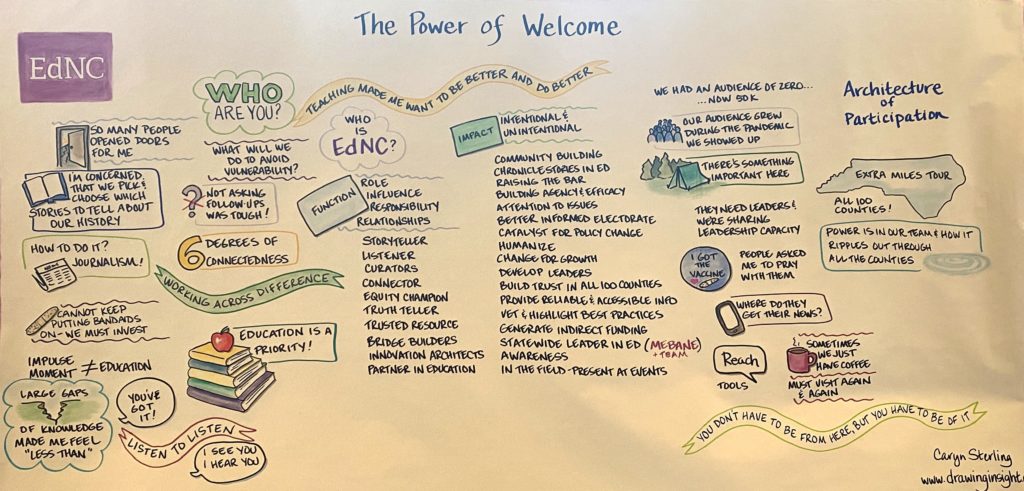
Thank you for your support of EdNC, for your support of our students, our state, and our future.
Here is hoping for a great school year, but either way, we will be there to bring you the news and share your stories.
Recommended reading
